They describe themselves like doctors on call, but death, rather than life, is more apt to pop in a person's mind when they hear about them.
In their dealings with death, members of the Fort McPherson Funeral Honors team bring a dignity to tragedy, heal the hearts of grieving Family Members, and show that the Army cares for its fallen veterans.
"When you bury someone, it's a personal, ever-lasting moment," said Sgt. 1st Class Richard Tulloch, team flag folder. "Whenever we do any funeral, we are public figures, representing the Army and Fort McPherson for the family."
The group represents the Army at funerals for active duty, retired and prior service Soldiers, said Sgt. 1st Class Catina Taylor, firing squad noncommissioned officer in charge.
"It's pretty steady," she said of the work, adding that the group usually averages two services a week. "We're on call seven days a week."
The work also includes planeside ceremonies, where a Soldier's body is returned to their family in the states. The group covers events within a two-and-a-half hour driving radius, covering areas in both Georgia and Tennessee, Tulloch said.
No matter where or who they are honoring, Sgt. 1st Class Eric Houston, Funeral Honors NCOIC, said it is an honor to show respect to fallen comrades.
To ensure that proper respects are always given, he said the ten-Soldier team constantly rehearses and trains.
Practice ensures the group is sharp no matter when called, Houston said. Although the team usually receives notice of at least 48 hours in advance, there have been times when they performed the day they received the call, he added.
"Every time you do it (a funeral), it is different," Houston said, saying that variables such as the location and family's wishes can introduce changes into their routine.
To mitigate them, the group heads out to scout the site a few hours early and talk with the family, Houston said.
"(We work to fulfill) whatever the family requests," Taylor said. At one funeral at Fort Stewart, Ga., the team allowed the deceased Soldier's best friend to serve alongside them as a pall bearer.
The practice also helps develop the teams personal relationships with one another.
"We're like an extended family. We go out and have functions together. We have a type of special bond," Houston said.
Although the team members are professionals, they can also be affected by the Soldiers that they honor.
This frequently occurs at planeside ceremonies, said Sgt. Timothy Braswell, who serves as a pall bearer and on the firing squad.
"We did one on Christmas, a planeside," he recalled. "It was the first time the family saw them (the body). You see the wife, the mom; it's emotional, but you have to drive on."
For Houston, in his year-and-a-half on the team (typical rotations last one year with an option to extend), his most emotional moment was the funeral for a young Soldier who died of a brain aneurism two weeks after becoming a new mother.
Others recalled a planeside procession from the DeKalb Peachtree Airport to Canton, Ga., where cars would pull off the road to render honors and roads were blocked off to allow passage.
Though not all funerals draw the same amount of publicity, Braswell said none are less significant than another.
"It makes me cherish life more, makes me appreciate what I have," Braswell said.
Houston agreed, adding, "for those of us who have been overseas, it could have been anyone of us."
While the job stirs feelings in the team, their main goal is to help the family cope with their own.
"We want to show that we care, that the military respects their son or daughter," Braswell said.
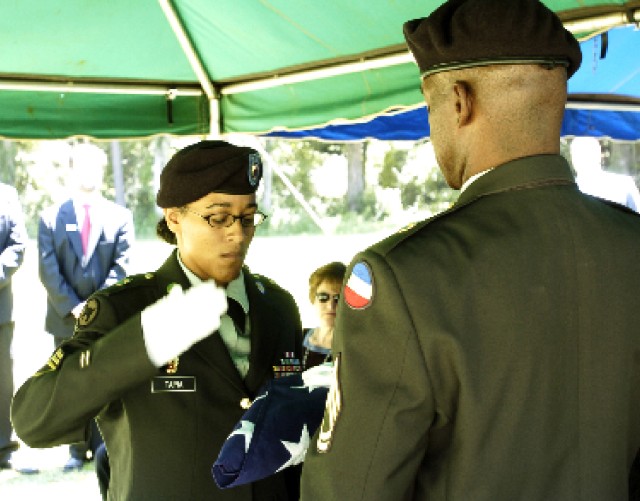
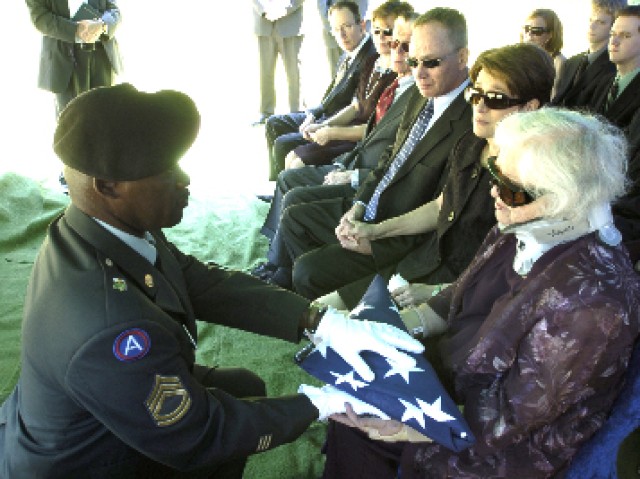
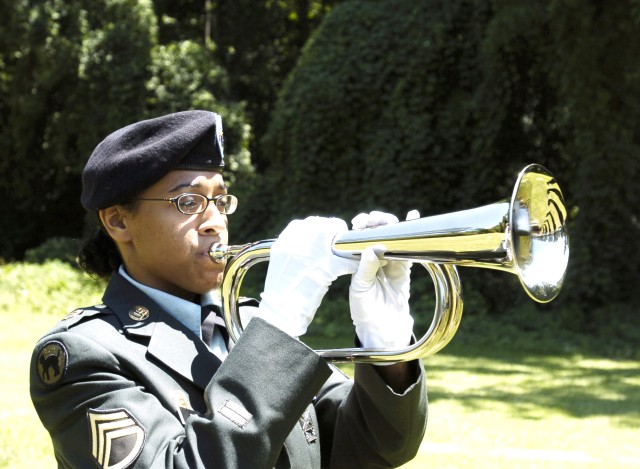
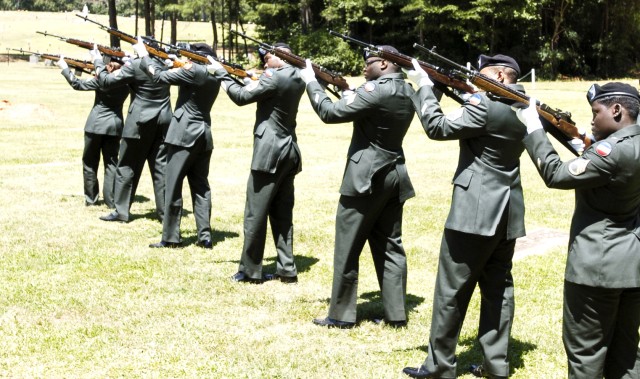
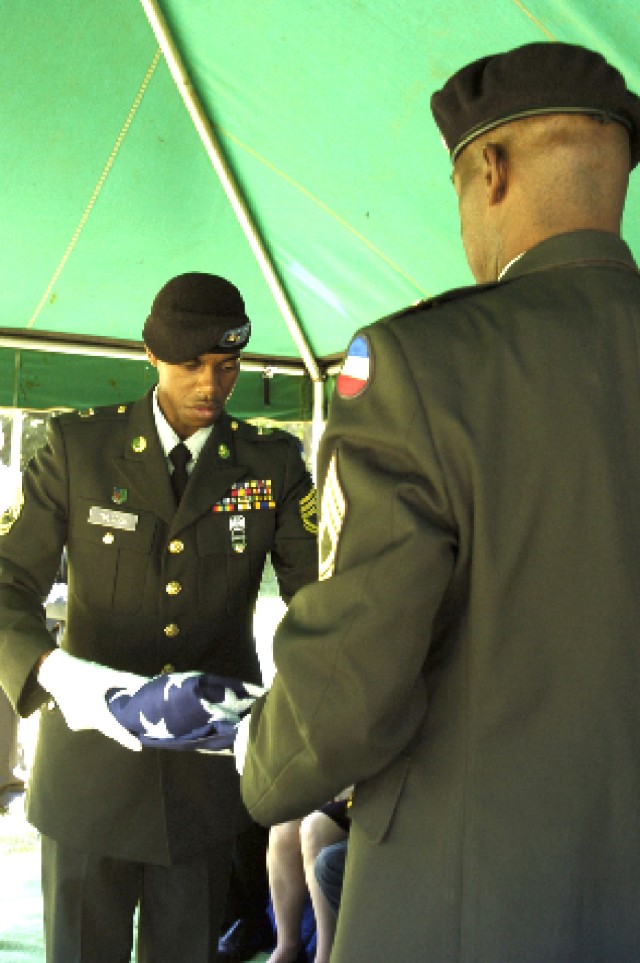
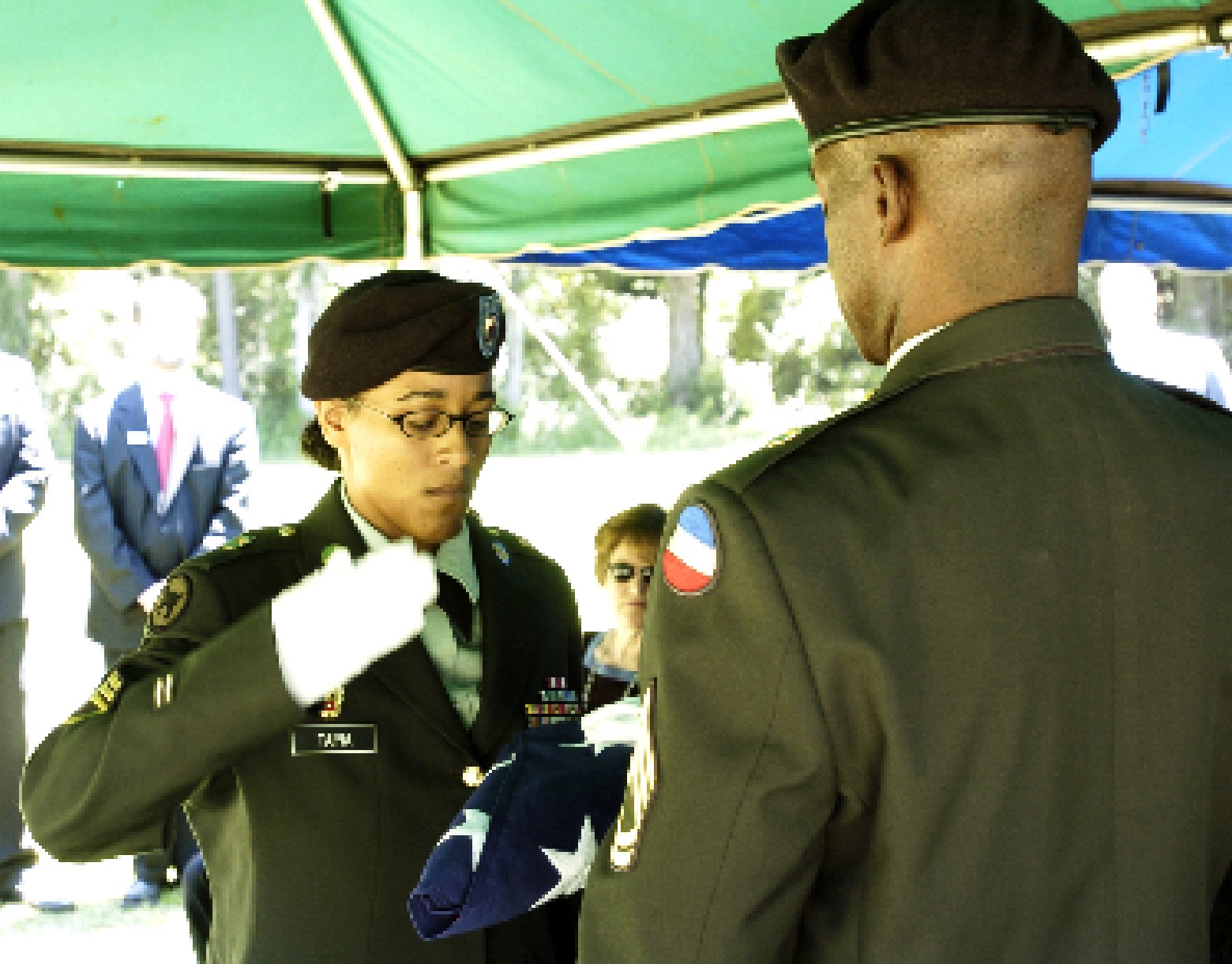
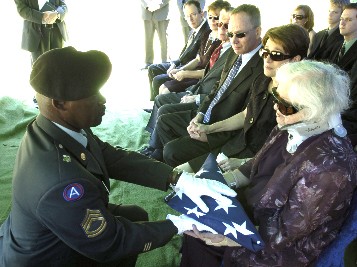
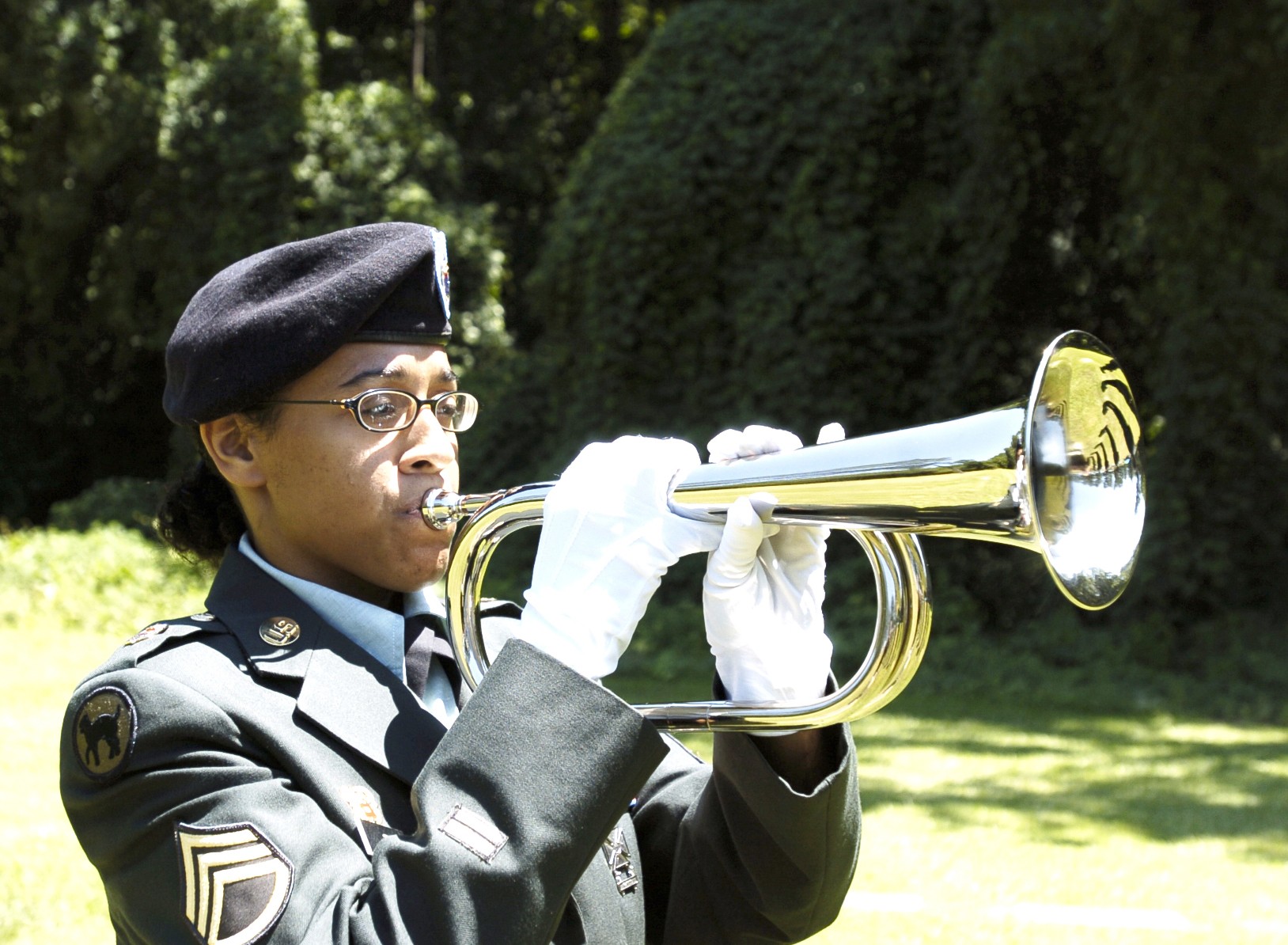
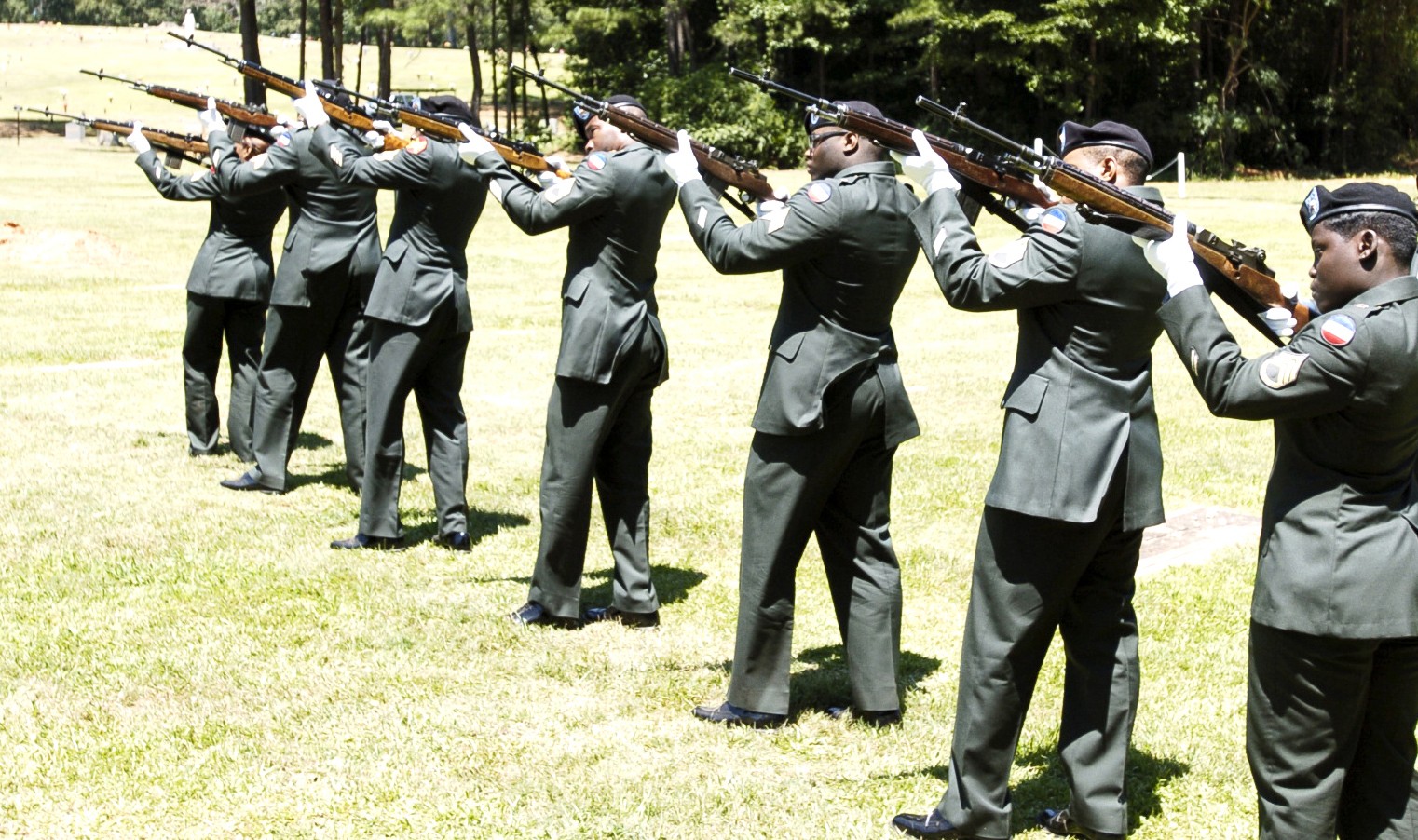
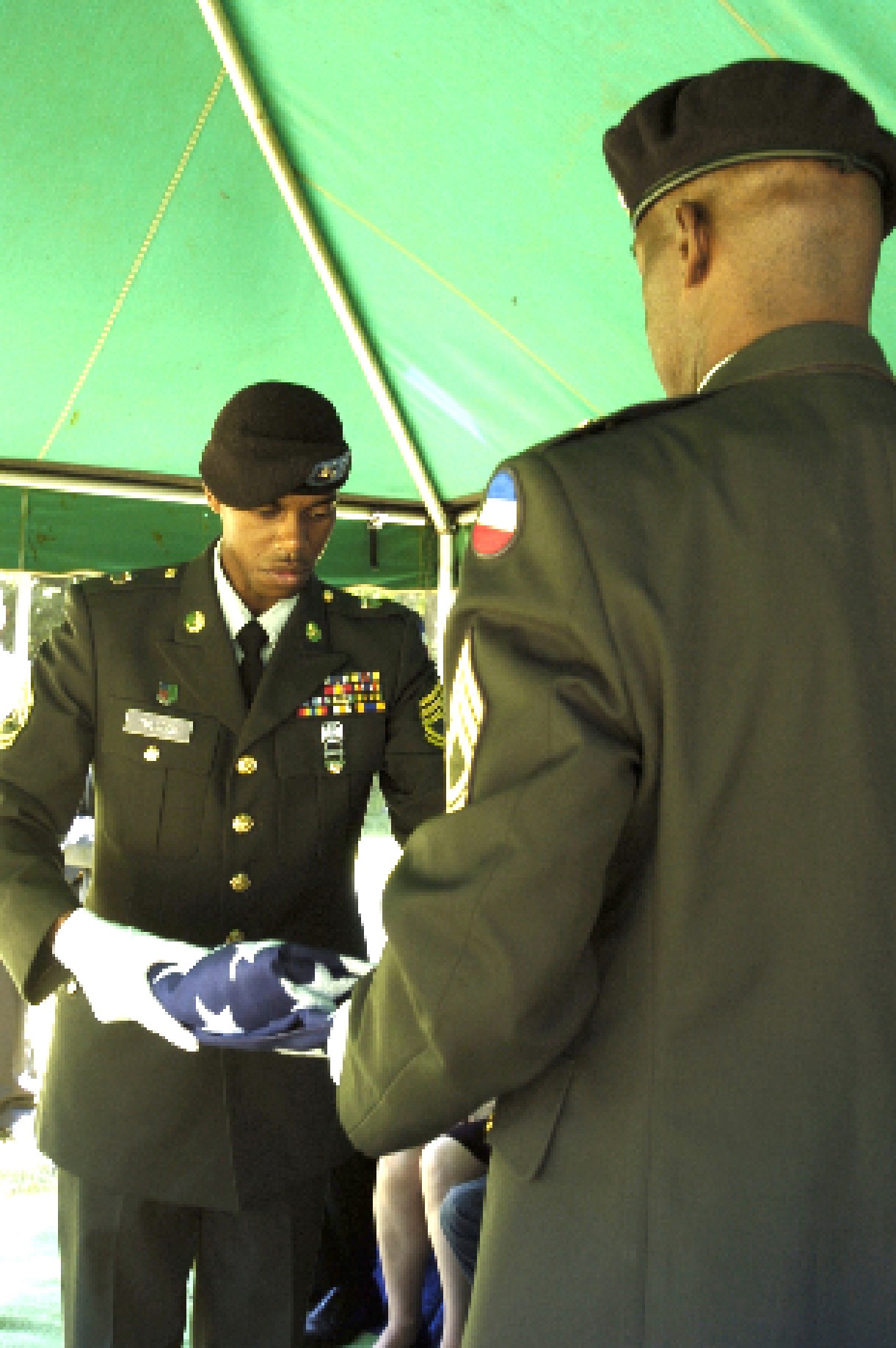
Social Sharing